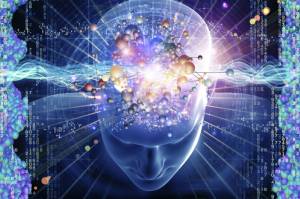12:07 We Subconsciously Predict, and React to, Emotional Events in the Future: Study |
 It is possible that our subconscious mind somehow "sees” events 1 to 10 seconds in the future. Before we are consciously aware of an event, our bodies may react with changes in the cardiopulmonary, skin, and/or nervous systems. A meta-analysis of more than 20 experiments conducted by seven independent laboratories suggested we are subconsciously capable of "predictive anticipatory activity (PAA).” This analysis, titled "Predictive physiological anticipation preceding seemingly unpredictable stimuli: a meta-analysis,” was led by psychologist Julia A. Mossbridge at Northwestern University and was published in the journal Frontiers in Psychology in October 2012. Before the image was displayed, the subject’s body would already register an appropriate response.
In many of the studies analyzed, the subjects were shown randomly selected images designed to be either emotionally evocative or neutral. Before the image was displayed, the subject’s body would already register an appropriate response. The strongest reactions occurred after the image was shown, but a slight reaction already registered seconds beforehand, suggesting a subconscious response to a future stimulus. The study authors used the following analogy to describe the phenomenon. Picture a stick standing up in the middle of a river with the water flowing around it. That stick represents a future event, it’s a perturbation—an emotional, arousing, or otherwise important event. The flow of the river represents the flow of time as your conscious mind perceives it. The water around the stick is more disturbed downstream from the stick. But, shortly upstream of the stick is a slight disturbance of the water as well. The subconscious mind detects the disturbance slightly before the event. The study authors note that a uniform standard would have to be used across many experiments to confirm the existence of PAA. This meta-analysis was only able to look at experiments that had employed diverse methods. Yet the authors found what they believe to be a significant indication that PAA does exist. They encouraged future studies to be conducted collaboratively with a fixed standard in place to confirm this hypothesis. What Might Cause This Phenomenon?Suggestions as to what may cause PAA include: 1. The conscious mind is wrong about when events occur. The event actually occurred 10 seconds earlier, when the body reacted to it, but the conscious mind didn’t register the event right away. 2. The concept in quantum physics of retrocausation may be in effect. It has been suggested that future and past events may interact. |
| Категория: Science | Просмотров: 1060 | |
| Всего комментариев: 0 | |



